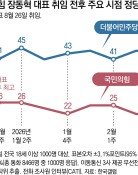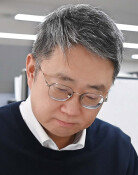[Op-Ed] From Receiving Nation to Giving Nation
[Op-Ed] From Receiving Nation to Giving Nation
Posted November. 24, 2009 07:34,
I risked my life to fight for Korea. It was worthwhile. U.N. soldiers who fought in the Korean War feel surprised by the dramatic growth of Korea whenever they visit the nation for which they fought. Robert Garcia, a six-time member of the U.S. House of Representatives, visited Korea two years ago and left this inspiring message: Korea has successfully overcome its war wounds and grown dramatically. Korea is the land God has chosen and blessed.
Until the 1960s, Korea had been one of the worlds poorest nations. Tomorrow, however, it will become the 24th member nation of the Development Assistance Committee of the Organization for Economic Cooperation and Development. The committee is an international forum to provide tangible and intangible aid for developing nations. In other words, it is understood as the group of advanced nations. The U.N. will also close its U.N. Development Program office in Seoul and launch a policy center there to support developing nations. Many developing nations envy Korea, which has gone from receiving aid to giving aid.
Korea, however, has been treated unfairly by the world and its global image has suffered more than expected despite its economic prowess. One possible reason is Seouls reluctance to provide international aid. Last year, Korea had the worlds 13th-largest economy but the share of its official development assistance was a mere 0.09 percent, far lower than the OECD average of 0.3 percent. Committee member nations provide 90 percent of their official development assistance without preconditions but Koreas ratio is 25 percent. On the other hand, Korea has sent aid to 127 nations. In short, the country has struggled to provide a smaller amount of money to many nations.
Korea does have internal problems requiring government assistance and the gap between rich and poor has widened. Nevertheless, overseas aid means a lot to Korea. If it gives more assistance, its status, power and pride will grow in the global village. Korea must also share its developmental experience in turning from receiving to giving nation with other developing nations. If Korea shares its experience, it will be a meaningful gift comparable to financial and material aid. If the country sincerely shares its know-how on economic development from its first-hand experience, this could be priceless aid to developing nations.
Editorial Writer Chung Sung-hee (shchung@donga.com)




![[단독]폴란드, 韓 해군 최초 잠수함 ‘장보고함’ 무상 양도 안받기로](https://dimg.donga.com/c/138/175/90/1/wps/NEWS/IMAGE/2026/02/27/133437397.1.jpg)

![“20대엔 28개, 80대엔 15개… 노년기 치아상실 피하려면”[베스트 닥터의 베스트 건강법]](https://dimg.donga.com/c/138/175/90/1/wps/NEWS/IMAGE/2026/02/27/133437590.4.jpg)
